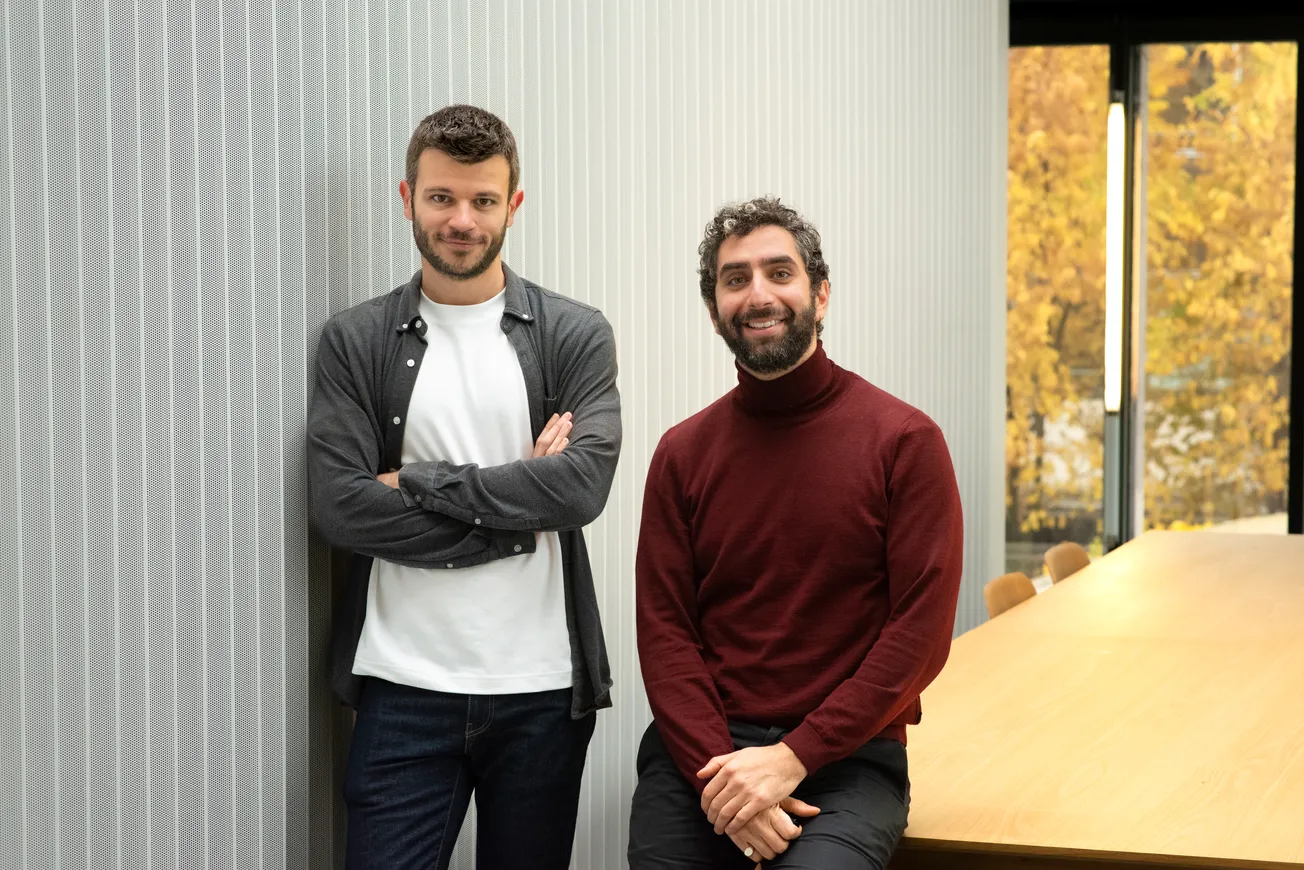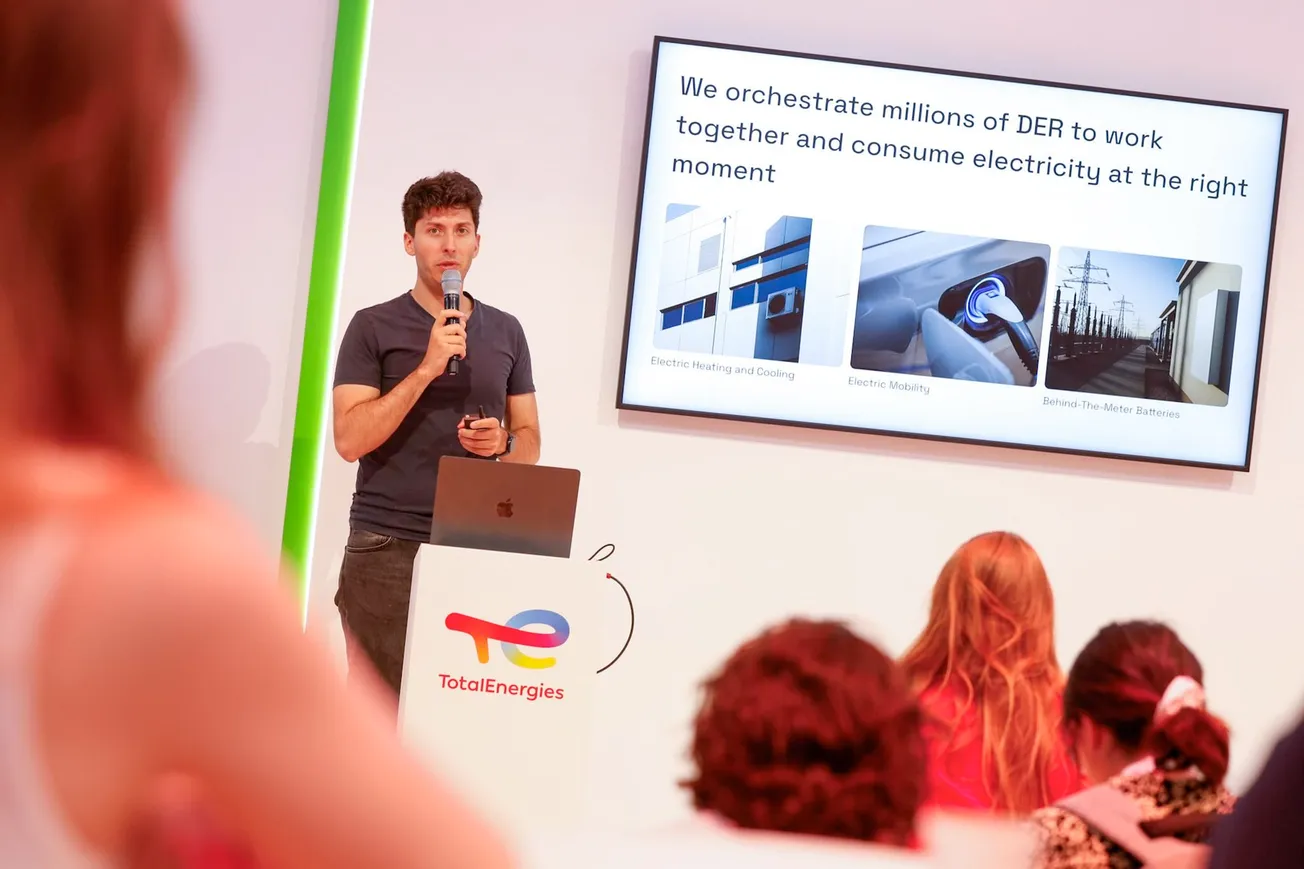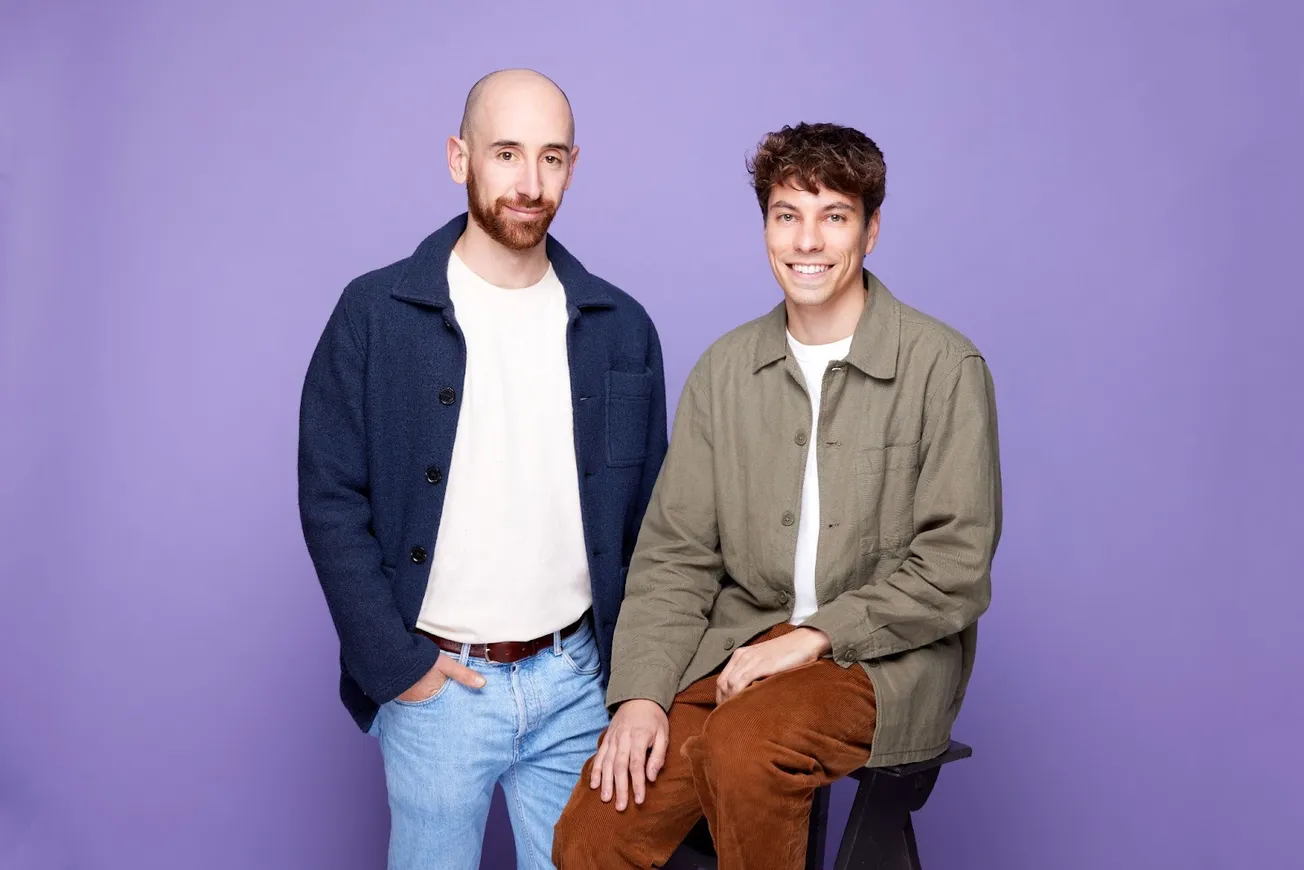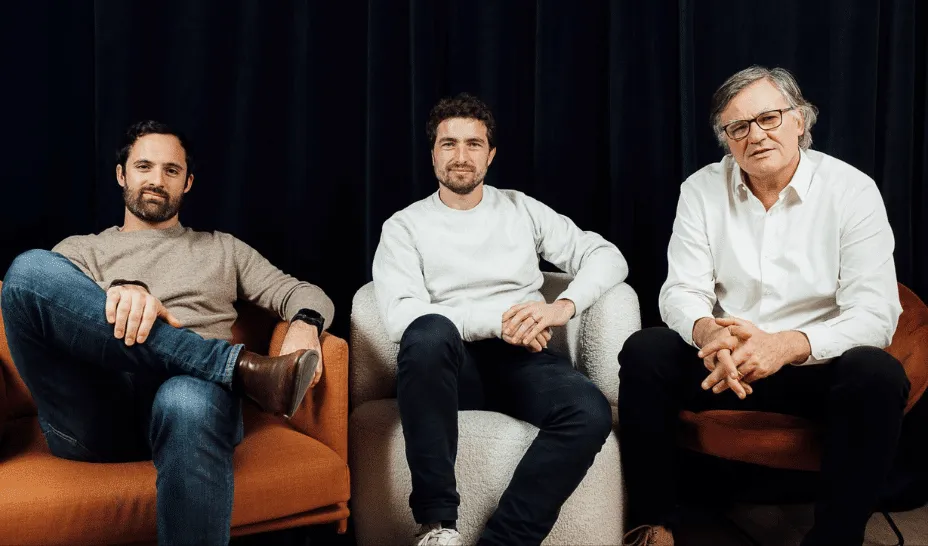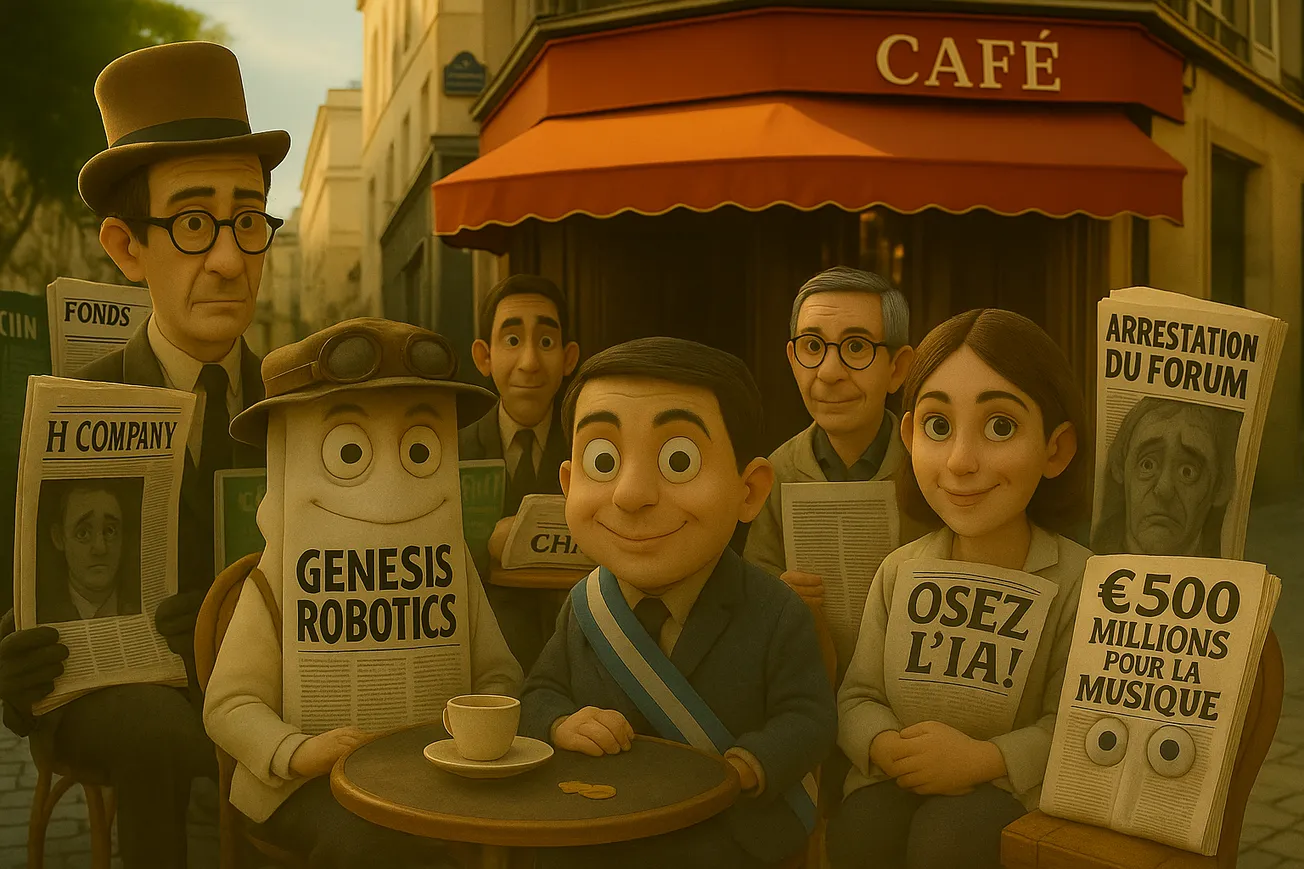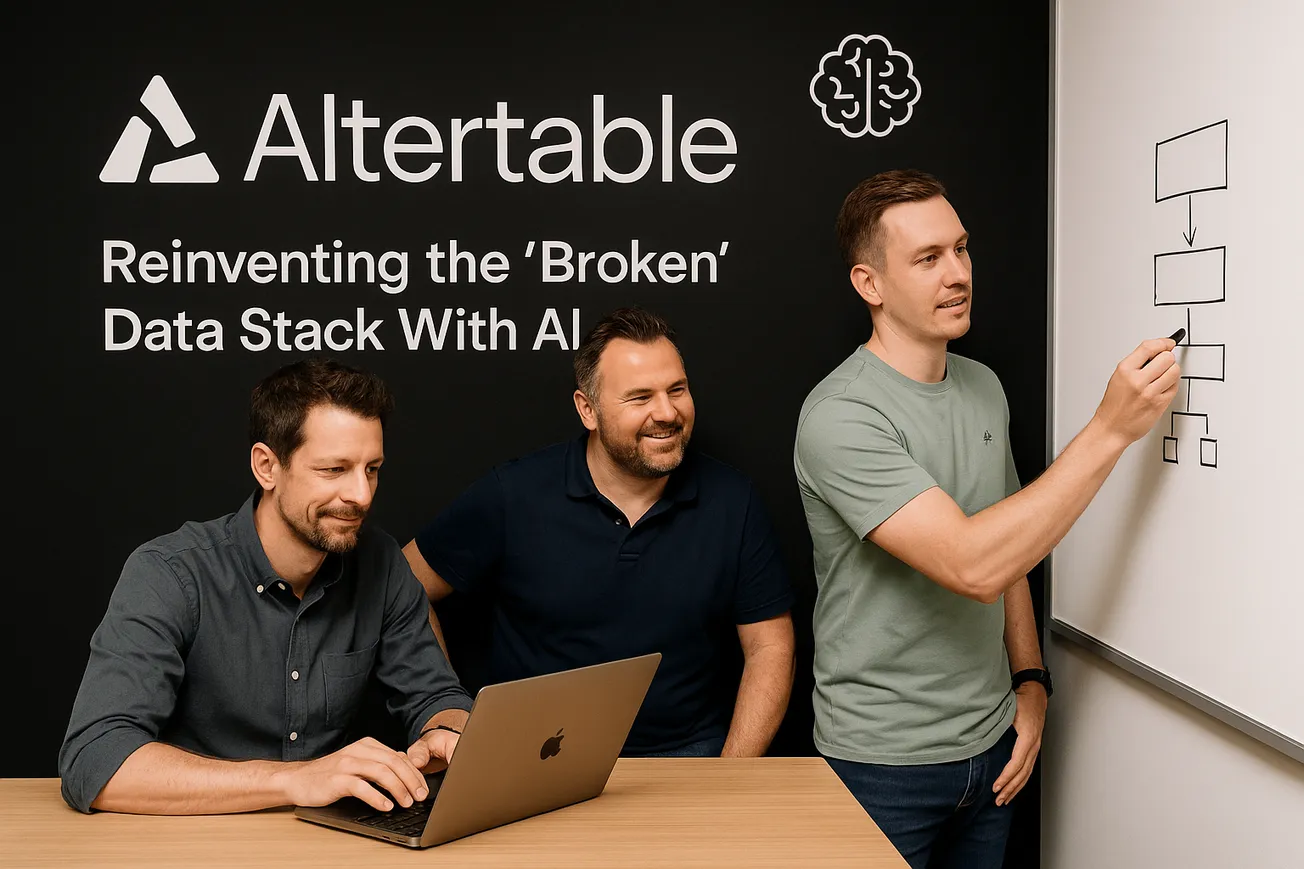Generative AI is impacting the creative process across a wide range of industries. Just how radical this transformation will be remains to be seen. But even as companies large and small grapple with how to harness this tool, the founders of Pimento believe they can use it to build a powerful brainstorming platform that reinvents the very first part of the creative process: idea generation.
In this scenario, Pimento becomes a service that enhances the human element and makes it more efficient, rather than replacing people. Instead of aiming to create a specific piece of content, it targets an entire project — from conception to distribution.
Pimento co-founder and CEO Florent Facq said the guiding mission of the company is to boost creativity by enabling more rapid ideation that allows for serendipity and creative accidents at a stage when a team is effectively working with a blank slate. At the same time, the platform still gives control to the designer and to the creative director.
"If the iteration and creation process is much more efficient, it allows you to go after different creative paths," he said. "The more you explore, the better your project will be, and the more ideas you will have. That's definitely the world we're looking for."

What is Pimento?
Pimento is a subscription-based platform that uses open-source generative AI models that are then customized separately for each customer. Founded in October 2022, the startup is based in Station F and is a participant in the Founders and Space Green programs, and has been named as one of Future 40 winners for 2023.
Pimento uses generative AI to help creatives at the moment when they have received a general brief, but no actual assets or campaigns have been developed. At this stage, it can often be time-consuming and laborious to brainstorm ideas and then agree on a concrete artistic direction. Ideas are proposed, they are passed around for several weeks among different stakeholders for feedback and then refined to undergo another round of approval until everyone is aligned.
With Pimento, a team can enter the creative brief for a project, along with any relevant product or brand images. Pimento then uses this information to train the GenAI model specifically for that project. The resulting assets can then be edited and tweaked to further train the model in real time. Currently, the platform is being used by art directors, advertising agencies, animation studios, and marketing teams.
Why?
In thinking about how GenAI could help the creative process, the co-founders spent several months talking to creative producers to understand the production chain, whether it's a video game, movie, fashion show, or a marketing campaign.
They broke this down into 3 main steps: Ideation (defining what the team is going to do) Production (actually creating the elements) and Distribution (optimizing the release to reach the right audiences). The distribution stage is already crowded with AI tools promising to help optimize for different channels. Production is also drawing a wide range of players such as big ones like Adobe and Figma, and startups like PhotoRoom that create images, videos, or sound.
So the founders turned their attention to the first stage, which potentially is where the real value of creative projects lies. At this point, creatives are asking questions like: How will the project address an audience? How will it be coherent in terms of message, look, and feel?
For many companies, this creativity is a strategic asset, but it can be an expensive and unpredictable part of the overall process. There are often several people sitting around a table, throwing out ideas, but then having to pick one or two and then develop the assets around it to truly see if it's the right path. If not, it's back to the drawing board.
Pimento provides a shortcut by allowing those teams to test their ideas and tweak them at that initial brainstorming step. Multiple cycles of iteration are possible at that very first meeting. And in cases where the AI seems to be off the mark, those mistakes can often spark different ways of thinking about the project, Facq said.
"Someone might say, 'Let's make it more minimalist,'" he said. "And actually, the minimalist you had in mind is not the same that I had in mind. So we go off for two weeks, but it's still not right. And it gets super frustrating because it can be hard to communicate precisely what everyone wants at this conception stage. But then you have limited time and resources, and at some point, you have to go into production. So your project is not as creative as it could be."
Under The Hood
About a year ago, the team started working on ways to use AI for creative people at the very start of the project. After raising some money, the co-founders hired a small team (there are now a total of 5 people at Pimento) and released a beta version in September.
The current interface gives users designs to help them customize the training of their AI. While Pimento has its basic model, a copy of that is placed in each customer account and then is trained using the elements the customer adds so that it's tuned to their specific project parameters.
Users can add different images or text that they have found – maybe it's a photo they took or an artist they like or existing brand assets – that can serve as inspiration for that training, which might suggest a mood, a color palette, a style, different shapes, etc. They then add a creative brief into a text box.
The images that are subsequently generated can then be further edited, rather than having to update the brief or the training elements to get exactly what they want. Maybe Pimento generates a cartoon cat and the style is appealing overall, but the eyes are not quite right. The user can edit just the eyes without having to start at the beginning and generate new sets of images. For instance, they can add an image of eyes they find elsewhere, and ask the AI to integrate those into the image. Each user's model is different and remains separate from other users.
The same can be done with videos or animations for films or games as developers want ideas for the look of new characters or settings.
"It's a way to iterate really fast and still be very precise on what you want," Facq said.
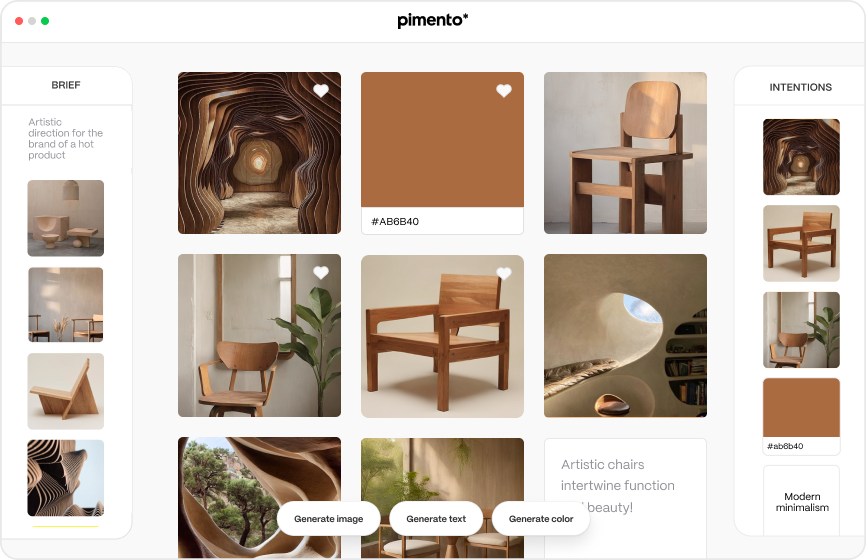
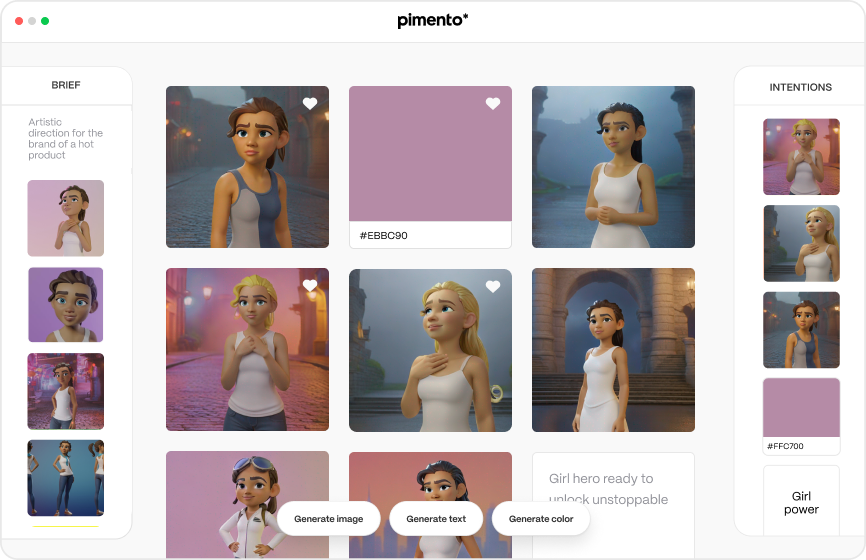
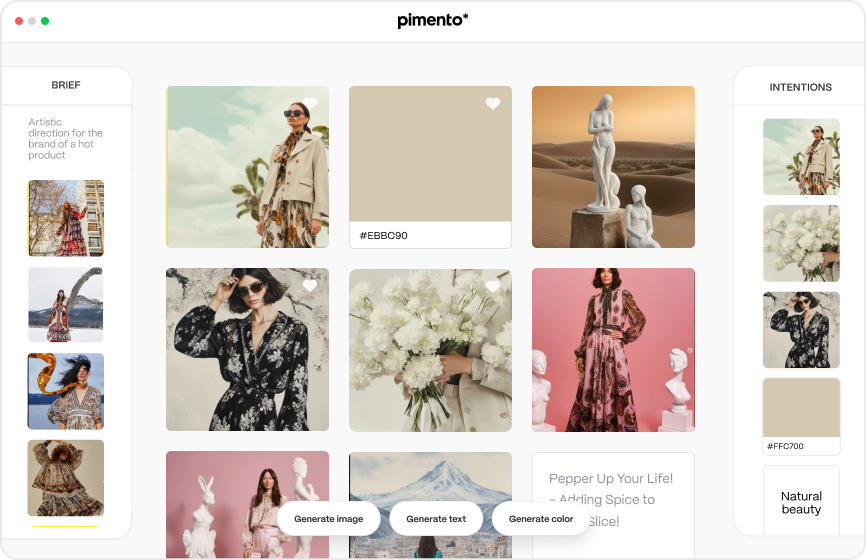
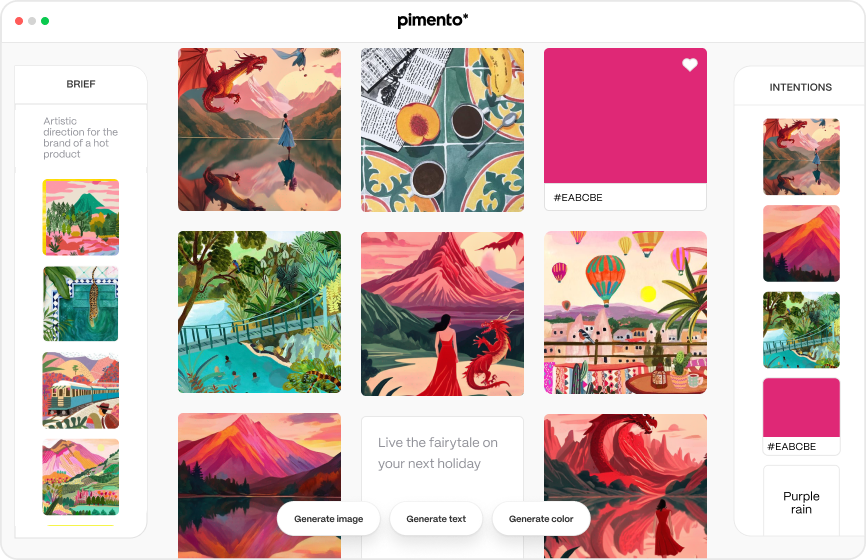
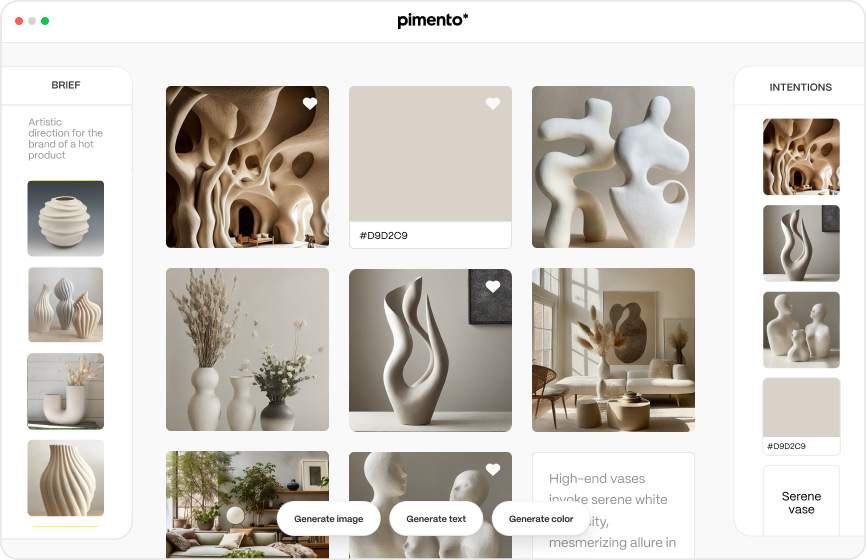
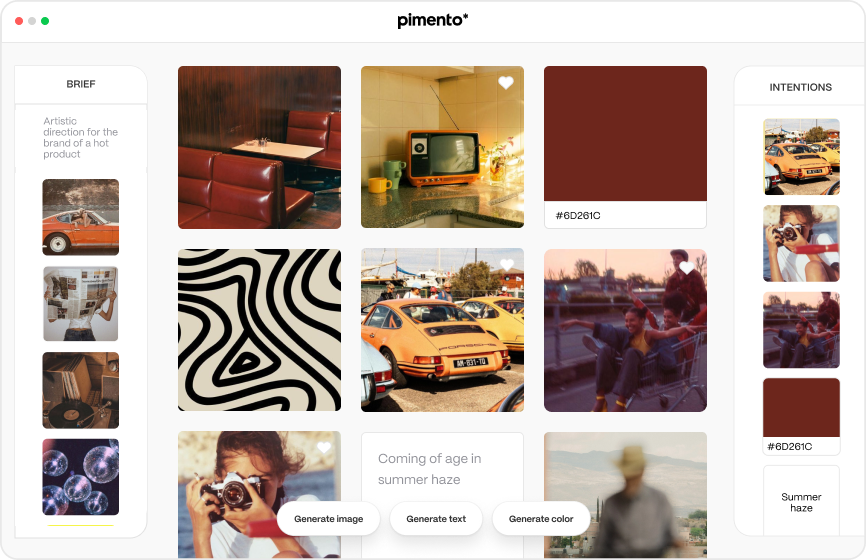
Who?
Co-founders Facq and Tomás Yany met while attending École Polytechnique, one of France's most prestigious engineering universities. Facq said they bonded over their shared passion for creative culture. Facq had been active in theater (and still owns his own theater company) while Yany was drawn to music and photography.
After graduating, Yany got a job at an AI photography startup that was acquired by Apple. He relocated to Silicon Valley where he worked on algorithms for AI embedded in the iPhone. He returned to Paris in 2018 and went to work at Nabla as a machine learning engineer.
Meanwhile, Facq became interested in public service and joined several different government agencies as a developer. Eventually, this led him to the Ministry of Culture where he oversaw the team tasked with building an app called Pass Culture. The app was intended to deliver on the government initiative to give several hundred euros each year to high school students that they could spend on books, music, concerts, and even classes.
The team was spun out into a private company and grew to 150 people. The app had to integrate thousands of stores and ticketing platforms to enable users to spend that money directly. And he had to develop a marketing plan to encourage students to sign up and access their credit, and then actually spend it. The app is now used by an estimated 3.5 million students.
"It all had to be seamless if we were going to help them diversify their cultural habits," Facq said.
The friends re-connected a couple of years ago, just as they were looking for new projects.
"We knew we both love tech and culture and creation," Facq said. "We also shared the same values about what companies should look like, what the team should look like, and where we project ourselves within 10 years."
The Full Scoop...
Subscribe to get Pimento's funding details and a breakdown of its investors.

